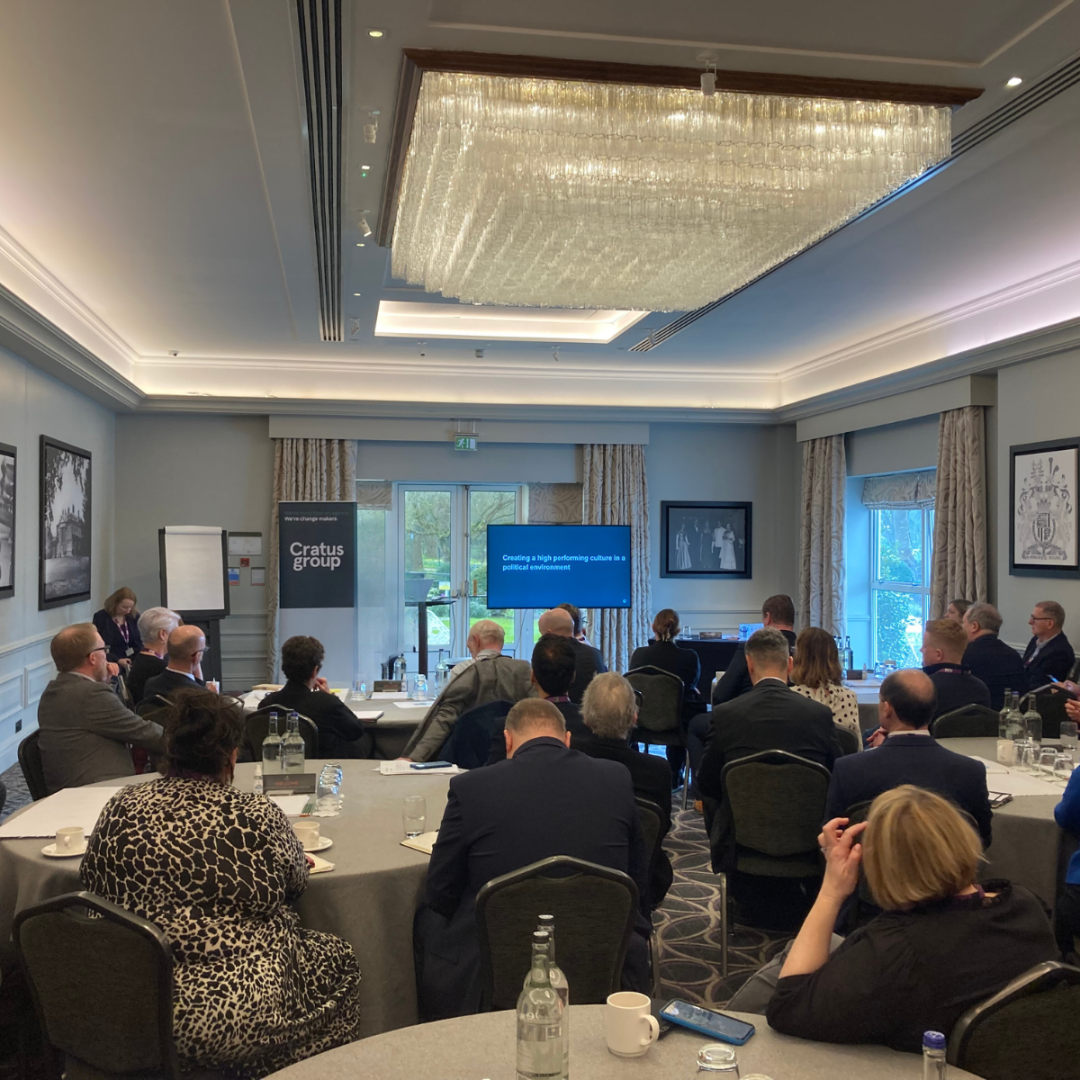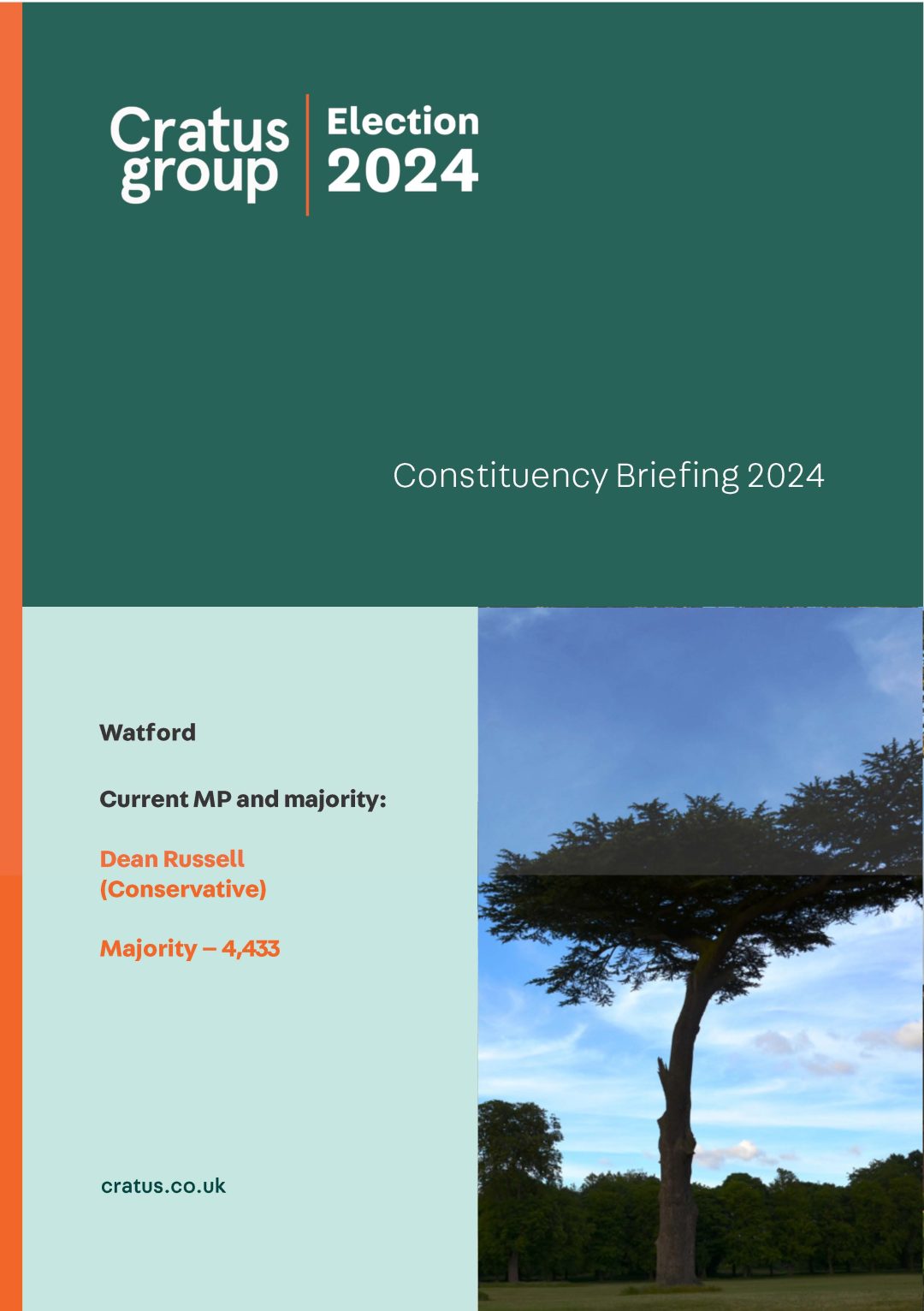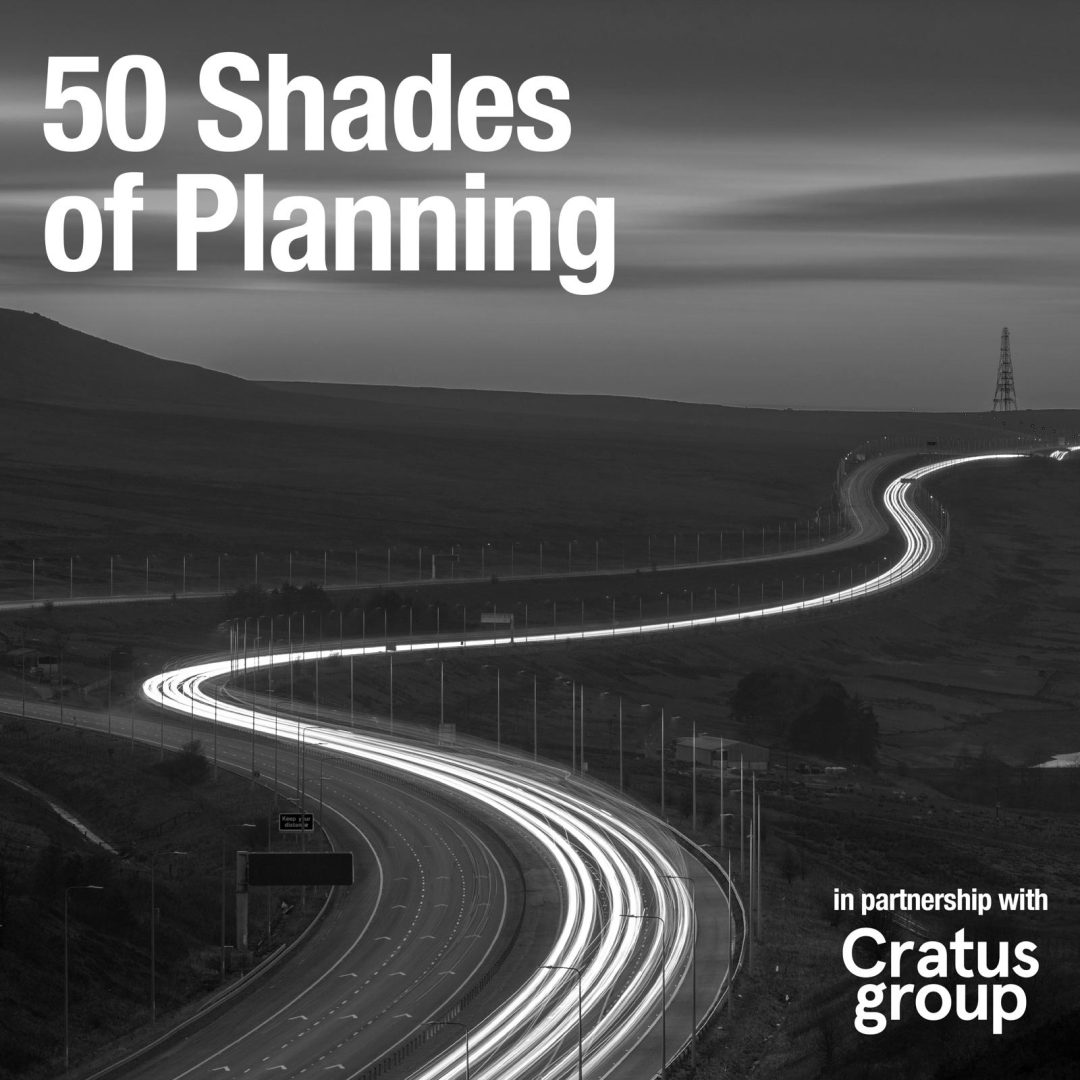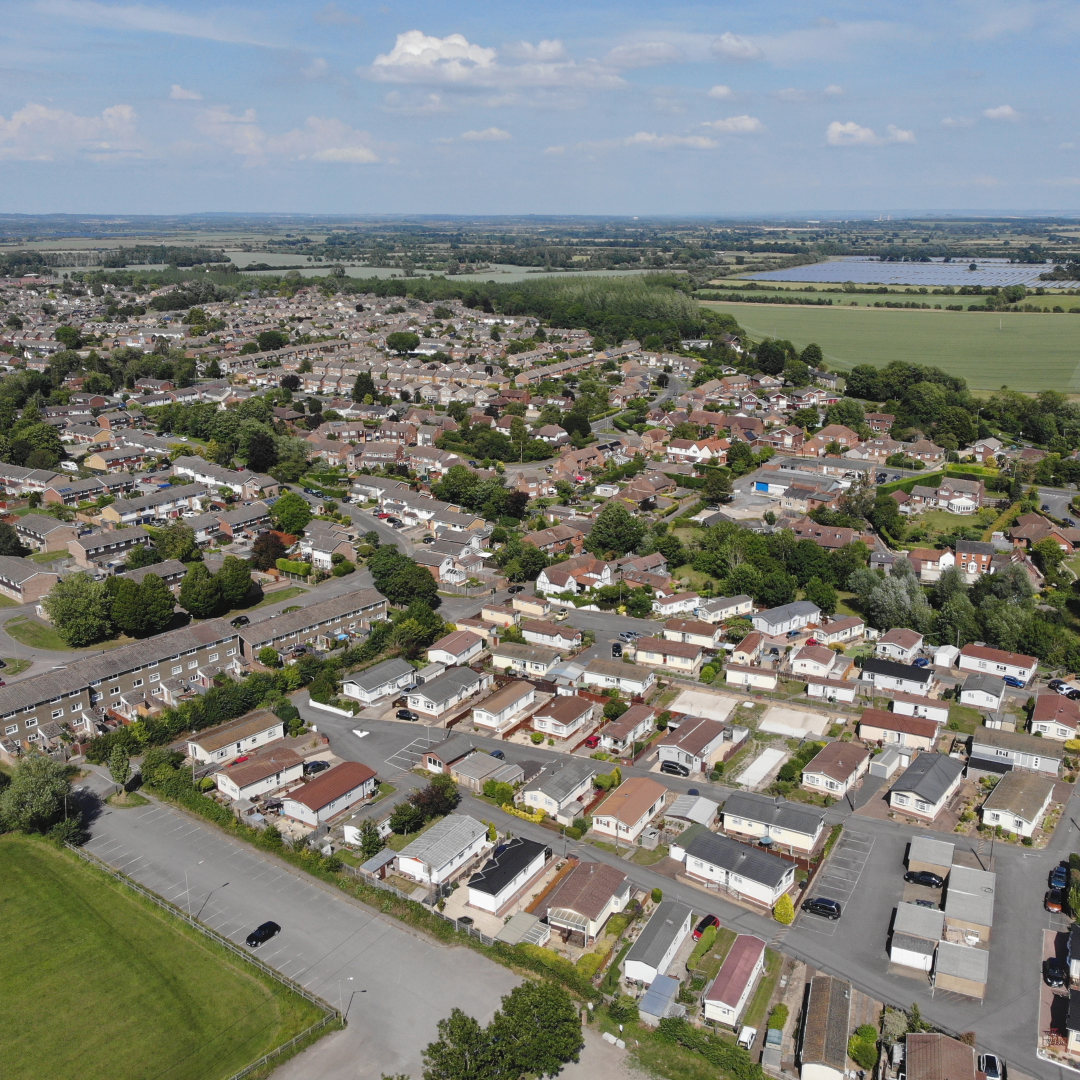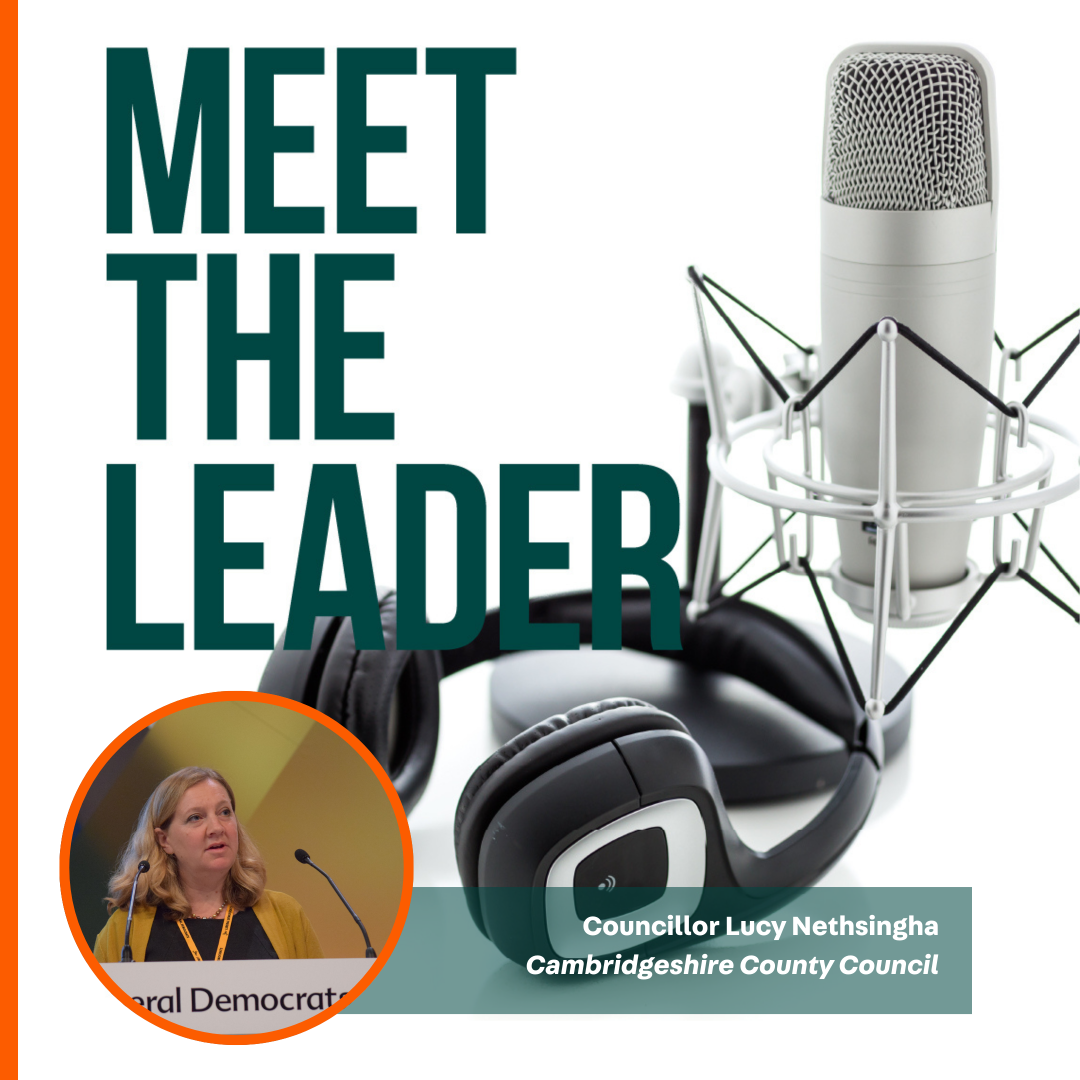Insights from Cratus Group at the District Councils Network Conference
Creating a high performing culture in a political environment
There is always a bit of a buzz in the Cratus Group office in March, as we prepare for the annual conference of the District Councils’ Network (DCN) – a cross-party network of 169 district and unitary councils. DCN councils play a unique role in shaping local places, which is also at the heart of Cratus Group’s history and part of our DNA, so it’s an organisation we’re very proud to work with.
Their annual conference brings together a whole host of district council luminaries with different environments and backgrounds, but with one aim in mind: working together to shape local places and improve lives. Where better for Cratus Group to discuss the question of creating a high performance culture, layered with the complex issues that a political environment can bring?
Our workshop drew in around 60 council leaders, chief executives and sector experts and provided a platform for some insightful discussions. We began with an exploration of established models and how they apply to different stakeholders. Participants grappled with the challenges that face officers and members on how to align priorities.
So what did we learn?
Purposeful strategies and plans need to be tailored to the environment
The top takeaway was that this is a complex process. Each council needs a clear strategy, aligned to their vision and unique challenges. While established models can be helpful tools to shape and support the thought process, one size definitely does not fit all.
Unity of purpose is paramount when people have different drivers
We established the importance of delineating clear boundaries in political environments. It’s important to recognise that people are there for different reasons, but should be heading in the same direction. Clarity of everyone’s objectives is always important in collaboration and decision-making: only once everyone’s priorities are clearly understood can we find a solution that authentically meets everyone’s needs.
Politics and organisational excellence do mix, but it takes time and transparency
Another key discussion touched on the importance of supporting political aspirations within the organisational framework and the challenges of delivering this. Again, one size does not fit all – it depends on where you are on the journey. Balancing political aspirations with delivery based, organisational objectives like efficiency and productivity, particularly in the lead-up to elections, emerged as a challenge that needs care and thought. This needs to be underpinned by transparency, trust and understanding, particularly in environments where optics play a significant role.
Language matters
Attendees acknowledged the need to use language and messaging to bring people together despite diverse political views. They emphasised the importance of creating a shared vocabulary and communication framework to unite stakeholders and encourage meaningful dialogue. A common language was seen as crucial for promoting clarity, understanding, and cohesion towards shared objectives.
Doing this right is going to take time and collective effort
Creating and sustaining a high-performing culture requires strategic thinking, time, effort, planning, care and commitment. You’re going to need to allow some space for cultivating values, fostering teamwork, and aligning individuals and teams with shared goals.
This won’t happen overnight, but the good news is that there are structured steps that you can take to make it happen. It’s not an art, it’s not a science, but it is a process.
If you’d like to hear more about creating a high performing culture for own organization, whether political or not, please get in touch with [email protected]
